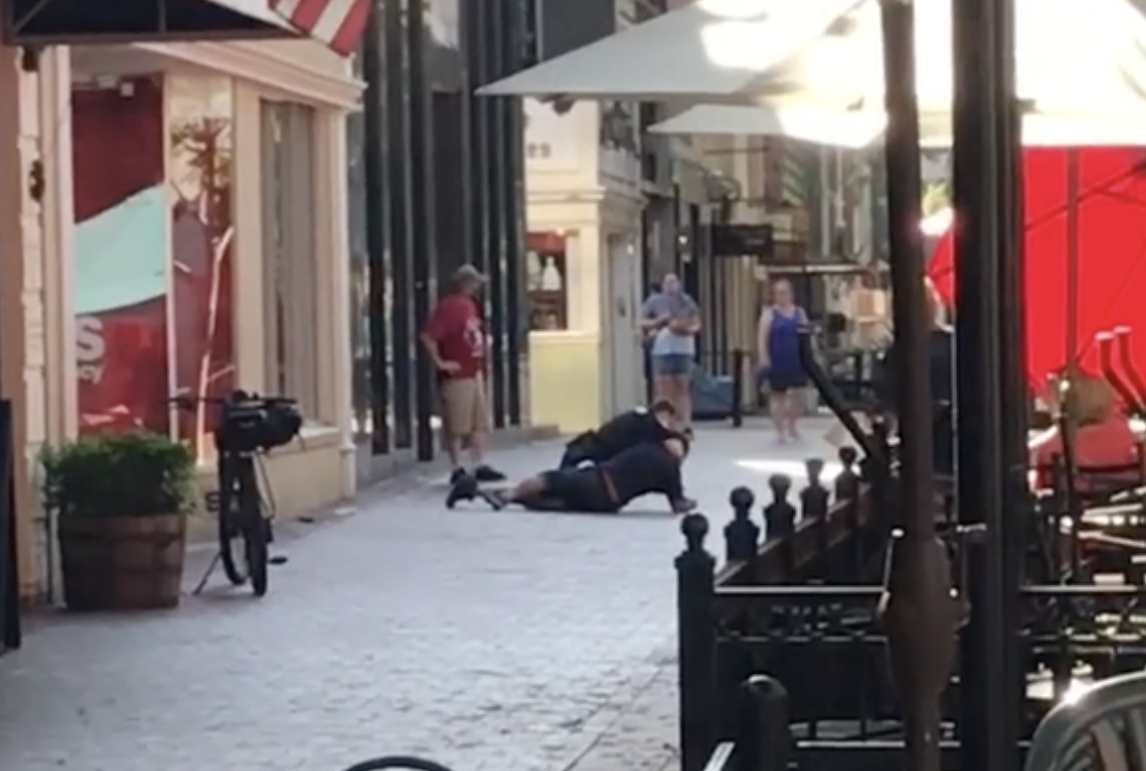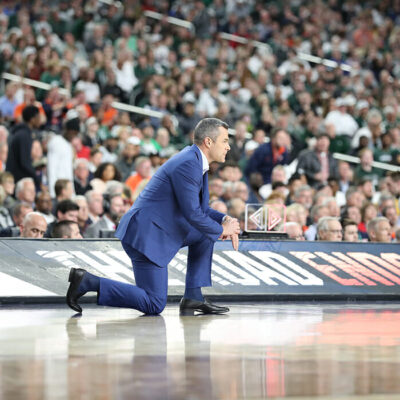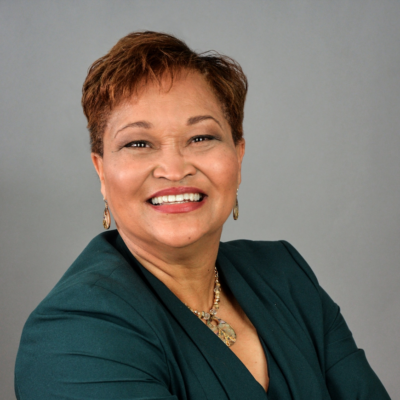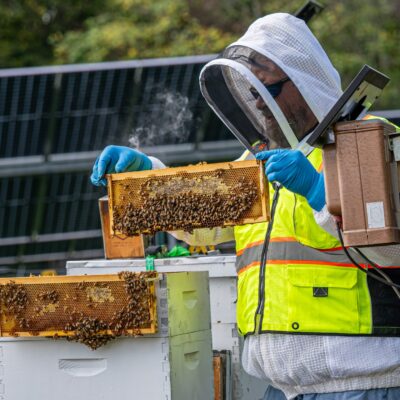For more than two years, Charlottesville’s Police Civilian Oversight Board has been embroiled in internal disputes over its ordinance and procedures, preventing its appointed members from doing their main job—reviewing the Charlottesville Police Department’s internal investigations. Last Thursday, the board was scheduled to hold its long-awaited first hearing concerning the violent arrest of a man experiencing homelessness in 2020. However, the morning of the hearing, complainant Jeff Fogel, a local attorney, and the CPD agreed to an alternative dispute resolution, putting the hearing on hold until further notice.
During a pre-hearing conference held last Monday, Fogel stated he would be open to speaking with the department directly about the controversial case, which acting CPD chief Tito Durrette later agreed to, explained board executive director Hansel Aguilar during the now-postponed hearing. Hearing examiner Cecil Creasey, a private attorney and administrative hearing officer for the Virginia Supreme Court, will facilitate the informal resolution on or around July 28. If the parties do not reach an agreement, the case will return to the board for a hearing.
“I don’t frankly have a lot of confidence in the people holding power on the [COB],” says Fogel. “I think it would be better to solve it directly with the police department. … If it took two years to hold the [COB] hearing, God knows how long it’s going to take to make a decision.”
Fogel believes the case at hand is an example of the unjust criminalization of people experiencing homelessness, particularly on the Downtown Mall. On July 8, 2020, someone called 911 after seeing 36-year-old Christopher Gonzalez lying down on the ground near CVS. A Charlottesville police officer soon arrived, followed by a rescue squad. Gonzalez admitted to drinking “a little bit” of alcohol, and said that he was homeless. Since Gonzalez declined a medical evaluation, the officer—whose name the department has refused to disclose to the public—dismissed the paramedics, but threatened to arrest Gonzalez unless he left the mall. Gonzalez replied that he wanted to “stay living” there, and refused to leave, according to the officer’s body camera footage.
“Then I’m going to take you to jail for drunk in public,” the officer responded.
“Well let’s go then,” Gonzalez replied. “I don’t see why I have to go.”
The officer tried to handcuff Gonzalez, but he pulled away and cursed at the officer. In response, the officer pinned Gonzalez to the ground, causing his body camera to fall off. A now-deleted Instagram video showed the officer putting Gonzalez in a headlock for nearly a minute, C-VILLE reported in 2020.
Gonzalez was charged with assault of a police officer—a felony—as well as misdemeanor public intoxication and obstruction of justice. He was held without bail for almost three weeks at the local jail, says Fogel. Those charges were later dismissed.
Due to the pandemic, “[the jail] wouldn’t let anybody out if they didn’t have housing, so a number of us got involved in getting him a place to stay,” says Fogel. “But there was no reason for him to spend that time in jail.”
After seeing the Instagram video, Fogel sent it to CPD’s internal affairs department, who then launched an investigation. In September 2020, the department exonerated the allegations of excessive force, and concluded that the allegations of bias-based policing were unfounded.
However, Fogel believes Gonzalez should have never been arrested or charged with a crime in the first place. He emphasizes that drunk people at downtown bars are not arrested for being intoxicated in public—but people experiencing homelessness are treated differently.
“According to the police department and the law, you can’t arrest somebody for [being] drunk in public, unless they are a danger to themselves and others,” says Fogel. “Let’s say he was a danger. … If you just do this off the Downtown Mall or anywhere else, it’s okay. We can’t have two laws—one on the Downtown Mall and one everywhere else. If he was a danger to himself or others, he shouldn’t have been allowed to go anywhere in the city.”
During the alternative dispute resolution, Fogel wants the department to address these legal issues—in addition to the allegations of excessive force and biased policing—and provide clarity “on this question of why we treat people differently depending on whether they’re on the mall, or somewhere else in the city,” he says.
He also wants the department to publicly release a video of Gonzalez’s arrest that was taken by a woman standing at a nearby cafe. He says he was told by Lt. Michael Gore that the internal affairs department used this video to make its determination.
If the case returns to the board for a hearing, Fogel believes members Bellamy Brown and Jeffrey Fracher would be biased against him. He claims Brown “berated” him over the phone once after Fogel criticized him during a COB meeting, and tried to convince one of his clients to fire him.
“The last thing that Bellamy said was, ‘This ain’t the end of this,’” adds Fogel. “It’s obvious that he’s got a bunch of hostility towards me.”
In text message exchanges revealed through a Freedom of Information Act request by activist Ang Conn earlier this year, Brown and Fracher also expressed their disdain for local activists, as well as then-mayor Nikuyah Walker, former CPD chief RaShall Brackney, and COB members Bill Mendez and Nancy Carpenter.
In a letter to Aguilar and at the board’s pre-hearing conference, Fogel asked Brown and Fracher to recuse themselves from the hearing, accusing them of being hostile towards him. (Member Nancy Carpenter recused herself due to conversations she’s had with Fogel about the criminalization of homelessness, while new member Dashad Cooper recused himself due to his unfamiliarity with the board’s procedures.)
Brown did not publicly respond to Fogel, but Fracher adamantly denied the allegations during the conference.
“I don’t know the man, I’ve never spoken to him, I’ve never seen him face to face. In my 40 years as a forensic psychologist, I’ve been an expert witness in hundreds of trials, with lawyers I like [and] dislike—there was never a question of bias [or] my integrity,” said Fracher. “You need not worry about what you’ve imagined to be this conspiracy of bias against you—it doesn’t exist.”






